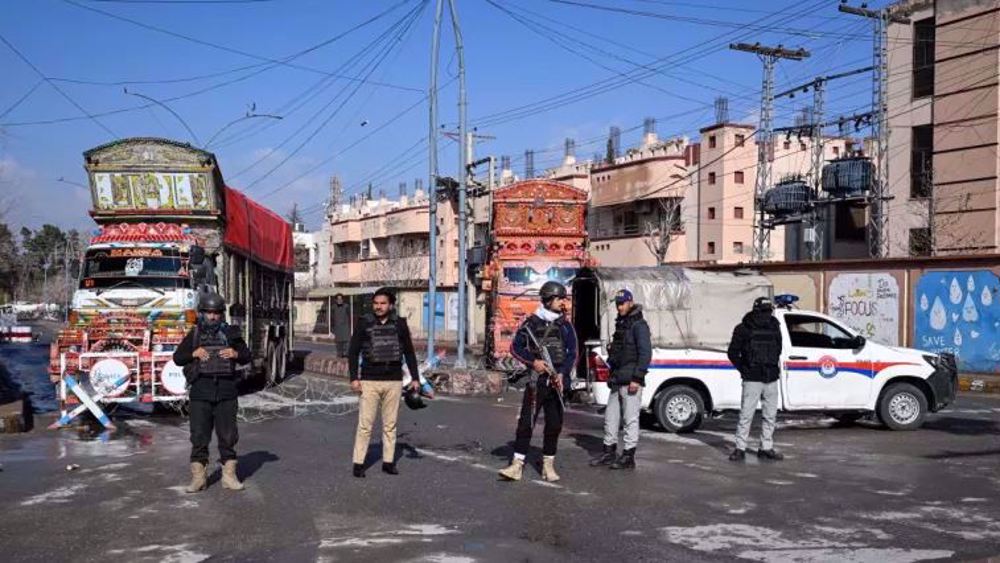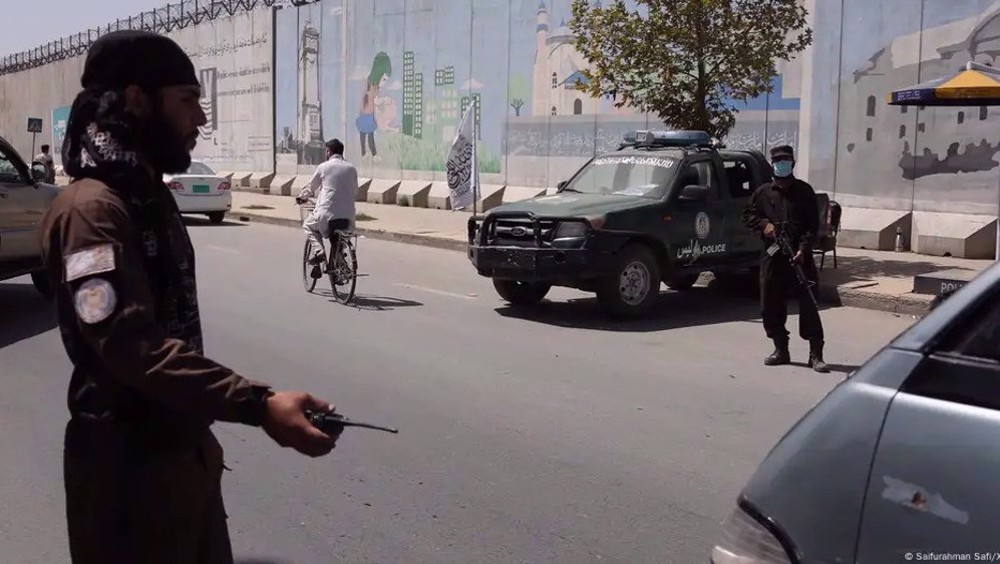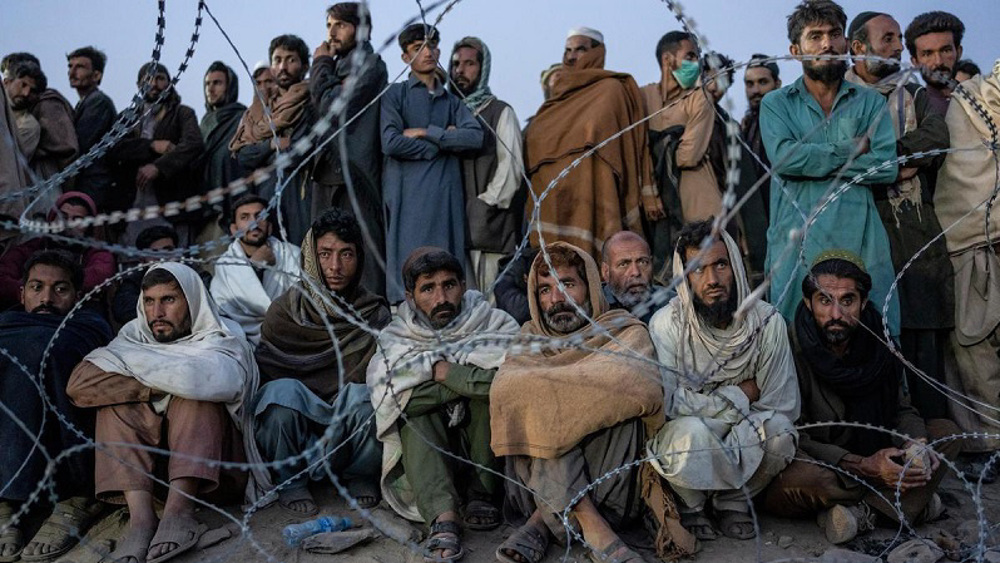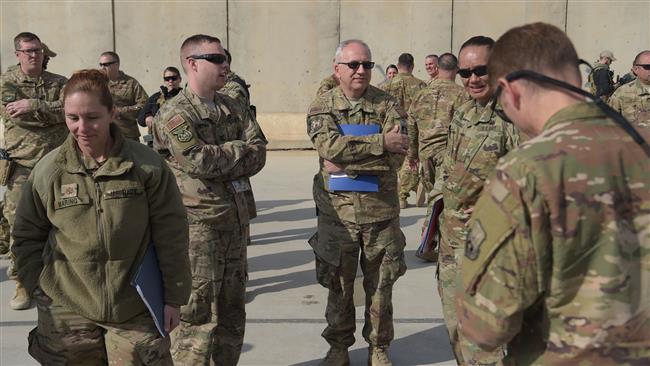Afghanistan: US security pledge or flourishing of Daesh?
The Daesh Takfiri terrorist group is apparently gaining more ground day by day in Afghanistan against the backdrop of its defeat in Syria and Iraq.
Acts of terror claimed by Daesh as well as the Taliban are seemingly expanding in Afghanistan’s most secure city, its capital Kabul.
Afghanistan has suffered from insecurity despite the presence of thousands of foreign troops following the invasion of the country led by the United States in 2001. Washington claimed it was fighting against terror when the campaign against Afghanistan began.
Last year, the Pentagon pledged to eliminate Daesh and contain the Taliban following a major surge of American troops deployment in the country, which took place last August after an order by US President Donald Trump.
Yet, the so-called war on terror has failed to help bring back security to Afghanistan.
In a pre-dawn terrorist attack on an Afghan army post in Kabul on January 28, a group of five Daesh-linked militants killed 11 soldiers. It was the fourth and the latest brazen terror raid in a little over a week that saw more than 140 people killed in and around the capital and exposed gaping holes in Afghanistan’s security structure.
The four terrorist assaults, two claimed by the Taliban and two by a local Daesh affiliate known as the Islamic State Khurasan (ISK), including the attack against the Jalalabad offices of the international NGO Save the Children, further pointed to the futility of Washington's 16-year-long campaign.
A little more than a month ago the ISK also claimed responsibility for killing 41 people at a Shia cultural center. In May 2017, a truck bomb near Kabul’s presidential palace that killed more than 150 people, mostly civilians, was also attributed to a group affiliated with Daesh.
Takfiri terrorist groups in Afghanistan have made considerable territorial gains and are openly active in about 70 percent of the country despite a threefold increase in US-led bombing of alleged terrorist sites in 2017, according to a recent BBC study.
Late last year, Russian Special Presidential Envoy for Afghanistan and Foreign Ministry's Director of the Second Asian Department Zamir Kabulov said it was estimated that over 10,000 members of Daesh were in Afghanistan.
"Russia was among the first to be sounding the alarms in connection with the emergence of Daesh in Afghanistan… Daesh has significantly increased its power in the country recently. According to our estimates, the number of militants exceeds 10,000 and continues to grow, particularly due to new fighters arriving from Syria and Iraq," Kabulov said in an interview with Sputnik on December 23, 2017.
Moreover, the Newsweek magazine reported on January 30 that “a watchdog responsible for reports on US efforts in Afghanistan was told to censor numbers about ISIS (Daesh) and Taliban control of territory from its latest quarterly update.”
According to the report, Special Investigator General for Afghanistan Reconstruction John Sopko, who has been issuing numbers on “insurgent” control of Afghanistan’s districts since 2015, wrote that his office was told not to include the numbers anymore.

“The Department of Defense instructed SIGAR not to release to the public data on the number of districts, and the population living in them, controlled or influenced by the Afghan government or by the insurgents, or contested by both,” Sopko wrote in the introductory letter to the report.
Leader of the Islamic Revolution Ayatollah Seyyed Ali Khamenei has also blamed Washington for the relocation of Daesh from the Middle East to Afghanistan.
By transferring Daesh from Iraq and Syria to Afghanistan, Washington seeks “to justify the continuation of its presence in the region and to create security for the Zionist regime,” Ayatollah Khamenei said on Tuesday.
Afghanistan's former President Hamid Karzai has also gone on record for blaming the US for propping up Daesh in Afghanistan and using it as a “tool” for its own political objectives in the country.

"I consider Daesh their tool," Karzai told the Voice of America Afghan service in an exclusive interview in Kabul last April. "I do not differentiate at all between Daesh and America."
"After it [the US] dropped the bomb on Afghanistan, it did not eliminate Daesh," Karzai said, referring to the "mother of all bombs [MOAB]" attack against alleged positions of Daesh earlier in April 2017.
According to the VOA report, the US military had promised to eliminate Daesh in Afghanistan in 2017 and contain a resurgent Taliban, citing recent battlefield successes against the two groups.
US lawmaker blasts attorney general for ‘lying under oath’ over handling of Epstein probe
Iran received no concrete US proposal in Oman talks: Security chief
Nouri al-Maliki defends Hashd al-Shaabi as inseparable part of Iraqi security system
British PM Keir Starmer faces calls to resign
Iran’s Kowsar satellite beams Islamic Revolution anniversary message across region
VIDEO | Press TV's news headlines
VIDEO | Indian regions celebrate Iran’s Islamic Revolution anniversary
Iran’s missile program will never be on negotiating table: Shamkhani













 This makes it easy to access the Press TV website
This makes it easy to access the Press TV website